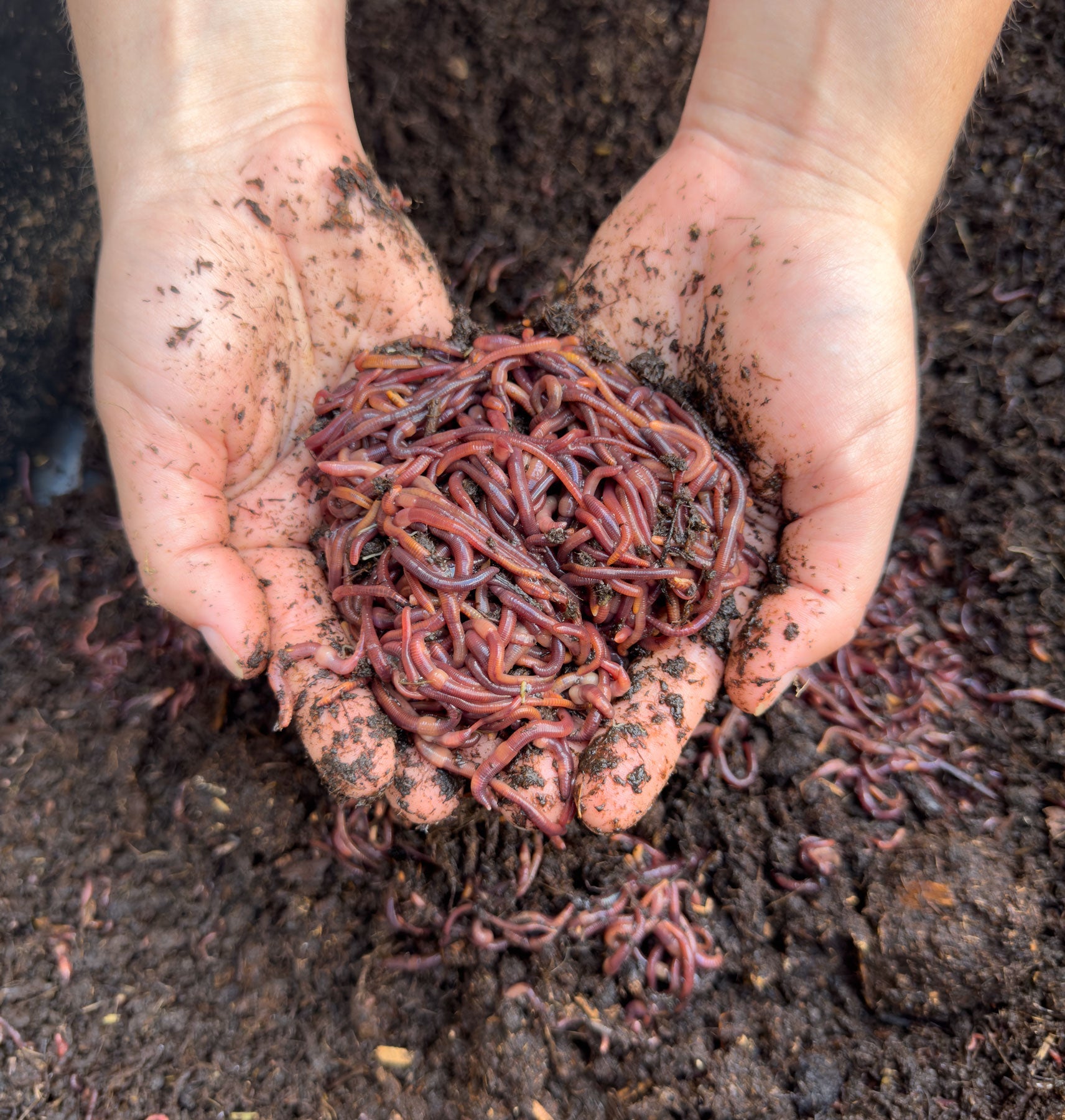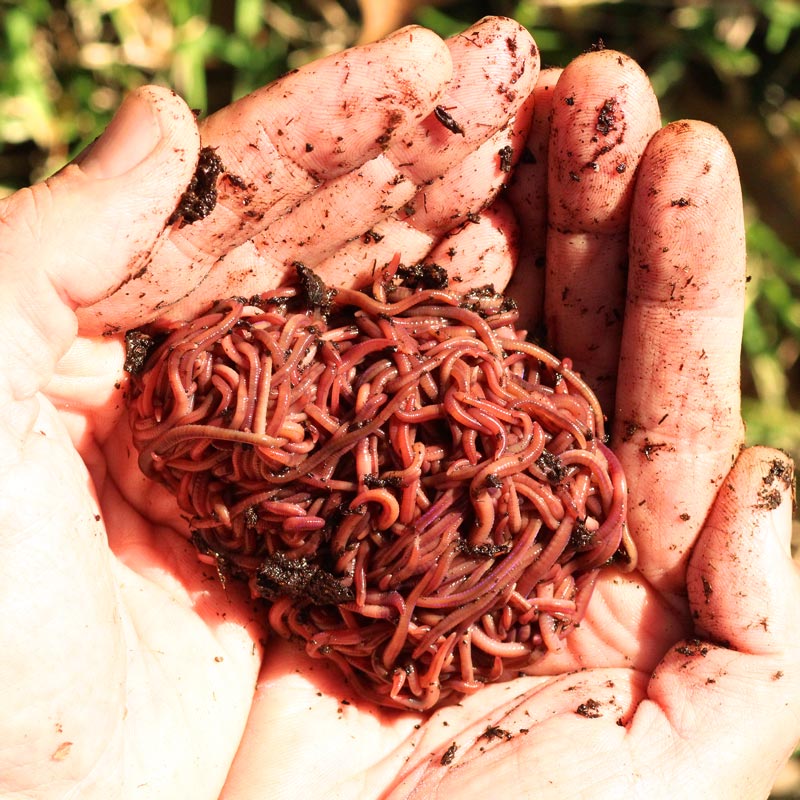Exactly How Red Wigglers Can Change Your Composting Experience
The combination of red wigglers right into composting practices provides a transformative strategy to squander monitoring and dirt enrichment. Understanding the particular demands and benefits connected with preserving a prospering worm populace is vital for optimizing their capacity.
Advantages of Red Wigglers
Red wigglers, clinically understood as Eisenia fetida, are a keystone of reliable composting systems because of their impressive capacity to decompose organic matter efficiently. These worms excel in transforming kitchen area scraps, backyard waste, and various other organic materials right into nutrient-rich compost, frequently referred to as worm spreadings. Lake Hickory Bait. This procedure not just minimizes garbage dump waste but additionally adds to sustainable gardening methods
One of the key benefits of red wigglers is their high recreation price, enabling them to inhabit a composting setting rapidly. This rapid reproduction improves decomposition prices, resulting in faster garden compost production. Additionally, red wigglers prosper in a diverse series of problems, making them adaptable to numerous composting setups.

Establishing Up Your Worm Bin
(Red Wiggler Express)To develop a reliable worm bin for composting, mindful focus needs to be given to its style and setting. A suitable worm container ought to be created of materials that are resilient yet permit for necessary air flow, such as plastic or timber. The dimension of the bin can vary, yet a volume of roughly 1 square foot per extra pound of worms is a great beginning point.
Guarantee that the container has drainage holes to prevent water build-up, which can bring about anaerobic conditions harmful to the worms. In addition, integrating air flow holes will certainly help keep proper humidity levels and oxygen circulation.
Following, it is necessary to supply bed linens for the worms, which can include shredded paper, cardboard, or coconut coir. This bedding not just uses a habitat for the worms yet also help in wetness retention.
Position the worm bin in a place that preserves a temperature level variety of 55-77 ° F(13-25 ° C) to optimize worm task. Stay clear of placing the bin in direct sunlight or extreme temperature levels. By adhering to these standards, you can create a favorable atmosphere for red wigglers, boosting the performance of your composting procedure.
What to Feed Your Worms

(Charlotte NC Worms For Sale)Red wigglers especially appreciate soft, wet foods like watermelon skins, cucumber peels, and banana peels. Nevertheless, it is critical to prevent feeding them citrus fruits, onions, and garlic, as these can be damaging to their wellness. Furthermore, cooked foods, milk products, and meat should be purely prevented, as they can lead to smells and draw in pests.
Offering a regular feeding schedule will assist maintain your worm population flourishing while boosting the overall effectiveness of your composting efforts. By recognizing what to feed your worms, you lay the groundwork for a successful and sustainable composting experience.
Keeping a Healthy Habitat
Developing a flourishing composting environment for red wigglers calls for attention to their habitat, as it directly affects their health and wellness and performance. The excellent habitat needs to maintain a well balanced moisture degree, typically between 60-70%. Too much moisture can cause anaerobic conditions, while inadequate wetness may dehydrate the worms.

The bed linen material in the garden compost must vary and shredded, including products like cardboard, newspaper, and coconut coir. This not only supplies a comfortable environment yet likewise functions as a food resource. Lake Hickory Bait. Consistently examining for odors or indicators of bugs can help recognize prospective issues prior to they intensify
Lastly, keeping a balanced pH degree, preferably between 6 and 7, makes certain a helpful habitat for red wigglers, fostering their capacity to procedure raw material effectively. By dealing with these elements, you can develop a lasting and productive composting ecosystem.
Harvesting and Using Compost
Harvesting garden compost from a worm container is a fulfilling procedure that transforms organic waste right into nutrient-rich material for yards and plants. Once the composting cycle is full, normally after 8-12 weeks, it's time to collect the vermicompost. The primary step entails separating the red wigglers from the finished garden compost. This can be done utilizing methods such as the "light" technique, where worms are brought in to light and can be scooped away from the top layers, or by relocating the compost away of the bin and including fresh bedding to the various other side, encouraging the worms to move.
As soon as the worms are removed, the staying garden compost can be filtered to remove any kind of bigger fragments or undecomposed material. This abundant garden compost can be applied straight to garden beds, blended into potting soil, or used as a leading clothing for potted plants.
Verdict
Including red wigglers right into composting methods dramatically boosts the decay process and adds to the production of nutrient-rich vermicompost. Their adaptability to various environments and high reproduction prices guarantee a sustainable populace, which effectively damages down natural matter. The resulting worm spreadings boost soil structure, fertility, and microbial task, inevitably promoting healthier plant development. For that reason, the integration of red wigglers into composting not only maximizes waste management yet additionally enhances garden ecosystems.